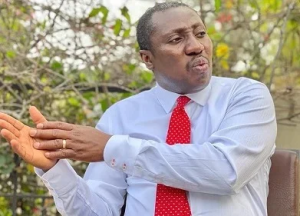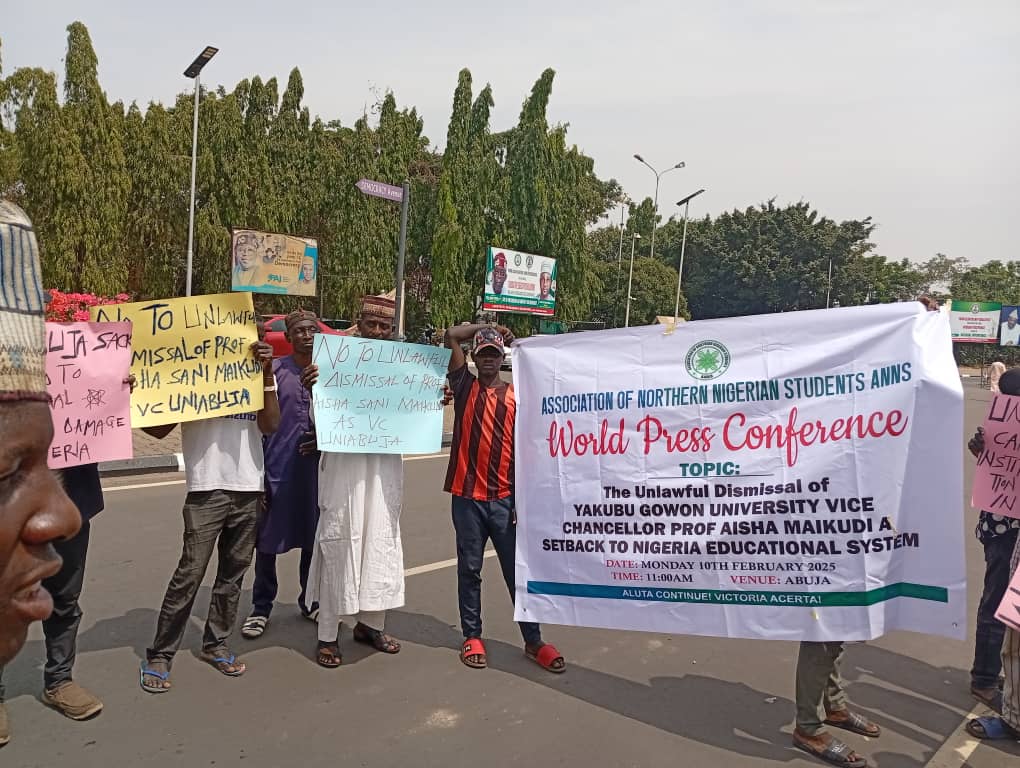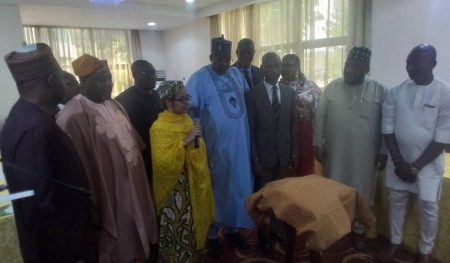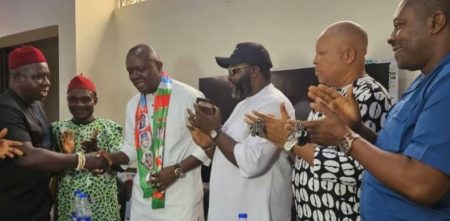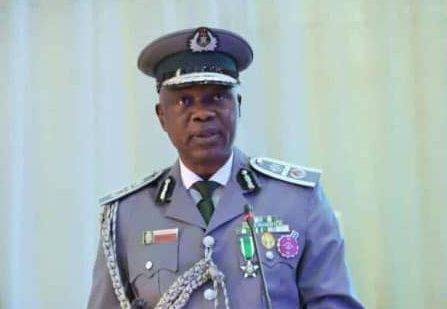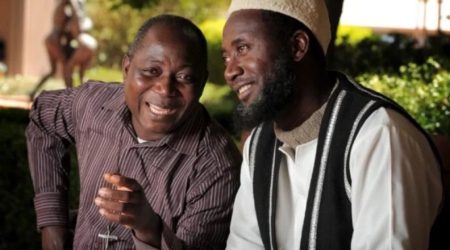The abrupt dismissal of Professor Aisha Maikudi as Vice-Chancellor of the University of Abuja sparked a wave of student protests, raising concerns about due process and the potential politicization of academic appointments. On Tuesday, a contingent of northern Nigerian students converged at the National Assembly complex in Abuja to decry the decision by President Bola Tinubu to relieve Maikudi of her duties and dissolve the university’s governing council. The students, led by Jabir Maiturare, President of the Association of Northern Nigerian Students, characterized the removal as unjust and demanded Maikudi’s immediate reinstatement. Their protest underscored the importance of transparency and fairness in leadership transitions within Nigeria’s educational institutions and highlighted the potential ramifications of perceived arbitrary actions on the stability and integrity of the academic system.
Central to the students’ grievances was the perceived lack of justification for Maikudi’s removal. Maiturare emphasized that Maikudi had initially been appointed in an acting capacity for six months, followed by a substantive four-year term starting on January 1st. Her dismissal a mere 36 days into her official tenure, without any publicly disclosed reasons or investigations into alleged misconduct, raised suspicions of ulterior motives. The students questioned the legality of the action, arguing that Maikudi was entitled to complete her term unless found guilty of wrongdoing through a proper investigative process. They contended that if any issues had arisen during her acting period, they should have been addressed before her permanent appointment was confirmed. The swiftness and seemingly arbitrary nature of the decision fueled speculation about political influences and raised concerns about the potential erosion of academic autonomy.
The appointment of Professor Patricia Manko as Acting Vice-Chancellor for a six-month term further fueled the students’ discontent. They argued that replacing a substantively appointed Vice-Chancellor with another acting appointee created instability and uncertainty within the university. The lack of clarity surrounding the criteria for Manko’s selection and the absence of a transparent selection process only exacerbated the situation. The students viewed the move as a disservice to the university community and a potential disruption to the institution’s academic progress. They called for a more considered and transparent approach to leadership transitions, emphasizing the need for stability and continuity in the university’s administration.
The students’ protest also highlighted the broader issue of political interference in academic appointments. The removal of a Vice-Chancellor shortly after a change in presidential administration raised concerns about the potential politicization of leadership positions within universities. Such actions, they argued, could undermine the independence and integrity of academic institutions, making them susceptible to political pressures and potentially compromising the quality of education. The students called for greater autonomy for universities, urging the government to refrain from interference in internal affairs and allow institutions to manage their own leadership transitions based on merit and established procedures.
The students directly appealed to President Tinubu, the National Assembly Committees on Education and Tertiary Institutions, and the Minister of Education to intervene and reverse the decision. They invoked Tinubu’s reputation for upholding unity and supporting student welfare, urging him to ensure justice was served in Maikudi’s case. Their plea underscored the importance of accountability and the need for leaders to uphold the principles of fairness and due process. The students emphasized that the issue was not just about one individual but about preserving the integrity of Nigeria’s education system and safeguarding the future of higher learning in the country. They called for a thorough investigation into the circumstances surrounding Maikudi’s removal and a commitment to upholding due process in all future leadership transitions within academic institutions.
The protest at the National Assembly served as a powerful reminder of the importance of student voices in advocating for fairness and transparency within the education system. The students’ demonstration highlighted the need for a more open and accountable process for appointing and removing university leaders, one that respects the principles of due process and avoids the perception of political interference. The incident underscored the vital role of academic autonomy in ensuring the quality and integrity of higher education in Nigeria. It also served as a call for greater dialogue and collaboration between students, university administrators, and government officials to address the challenges facing the education sector and create a more equitable and effective system for all stakeholders.


